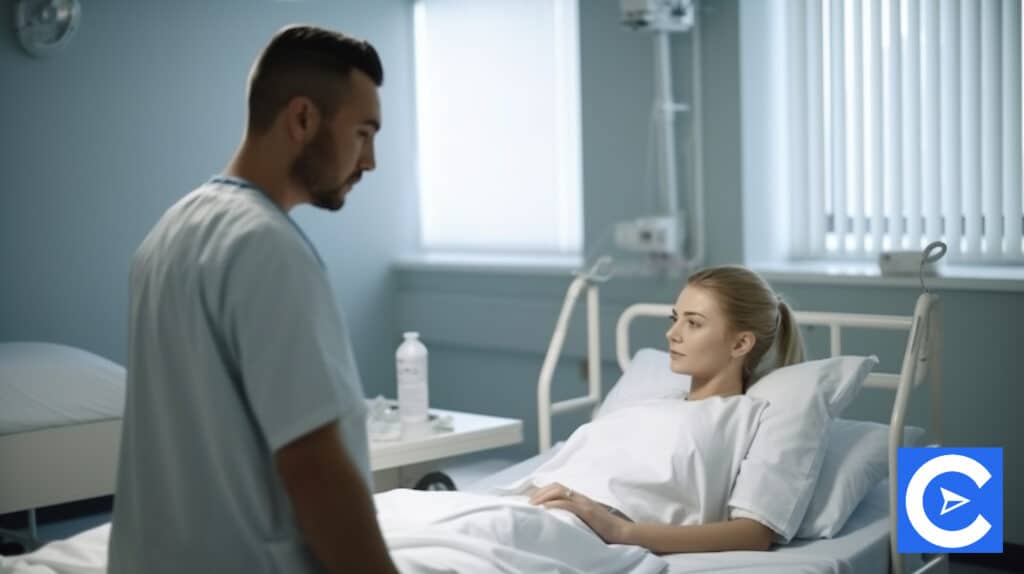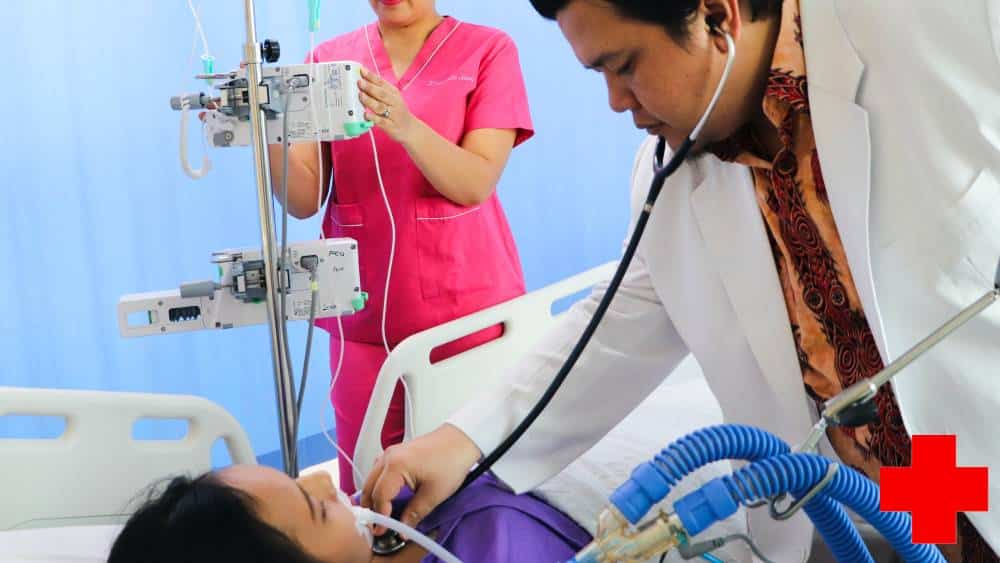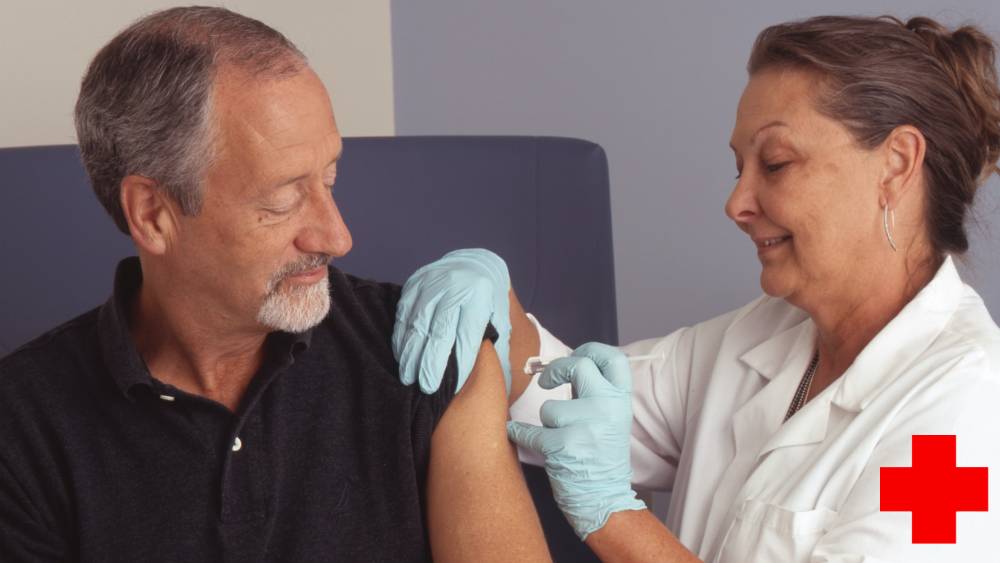Welcome to the ultimate Psychiatric Nurse Practitioner vs Psychiatrist showdown!
Reading this article will give you a detailed breakdown of the differences between a Psychiatric Nurse Practitioner and a Psychiatrist.
We provide details on the contrast in their job description, roles, and salary; we then finish up with a few similarities that they share.
This article covers the following:
- Work Environment and Job Description
- Salary Comparison
- Highest Paying States
- Key Similarities
Are you torn between whether to pursue a nursing degree or a bachelor of science in psychiatry?
Have a read below!
Introduction

There’s a lot of confusion about the difference between a Psychiatrist and a Psychiatric Nurse Practitioner.
A Psychiatrist is a Medical Doctor who specializes in mental health.
They can prescribe medication and offer talk therapy.
A Psychiatric Nurse Practitioner is a Registered Nurse with additional specialized training in mental health.
They also can prescribe medication and offer talk therapy.
So, what’s the difference or similarity?
Let’s take a closer look.
Psychiatrists have more training than Psychiatric Nurse Practitioners.
They complete four years of medical school, followed by a four-year residency in psychiatry.
That means they are better equipped to treat complex mental health conditions.
Psychiatric Nurse Practitioners have completed two to three years of graduate-level nursing education, followed by a one-year Psychiatric Nurse Practitioner program.
But here’s the thing; both Psychiatrists and Psychiatric Nurse Practitioners are qualified to provide high-quality care.
Depending on bipolar disorder or mental health disorder, either one could be the best choice.
A more refined difference between the two specialists is offered below.
Educational Requirements

Psychiatric Nurse Practitioner Education Requirements
Nurses who work in mental health services must be qualified and adequately trained to provide the best care for patients.
A Psychiatric Nurse Practitioner is an Advanced Practice Registered Nurse with an educational background that includes graduate-level coursework, such as a master’s degrees or doctor of nursing practice.
This individual can diagnose illnesses through physical examinations and evaluations while also providing treatments depending on what’s needed at any given time during the treatment process.
To become a Psychiatric Nurse Practitioner, you must first enroll in an advanced nursing program and earn your degree.
The MSN program is highly recommended who want to be Psychiatric Mental Health Nurses Practitioners.
It requires students to complete general advanced-practice classes and courses specifically geared towards that goal, such as:
- Lifespan psychiatric-mental health nursing
- Individual and family psychotherapy
- Advanced assessment of psychiatric-mental health disorders
- Psychopharmacology
You may also take advanced-practice courses such as:
- Pharmacology for Advanced Practice Nurses
- Advanced health assessment
- Advanced pathophysiology
- Health promotion and maintenance
Psychiatrist Education Requirements
The journey to becoming a Psychiatrist can be long and arduous.
But with the expected job outcome and salary outlook for this career choice, choosing to be a Psych Specialist can be a rewarding career.
After completing four years at the bachelor’s degree (BSN) level, plus internship/residency programs, hopefuls must then go onto medical school where they hope, upon graduating, they will earn either an Osteopathic Medicine (D.O.) or Doctor of Medicine (M.D.) degree.
Medical school is an intensive two-year learning process that covers the foundation of all areas related to medicine.
This includes courses such as anatomy and physiology, pathology (the study of diseases), immunology which studies how your body fights off infection or illness, plus biochemistry, which teaches you what makes cells function at their best!
Other crucial courses include medical ethics and legalities.
The time commitment needed for this degree pays off when it comes to diagnosing different types of illnesses because Doctors need knowledge across many disciplines if they hope to have successful careers in healthcare.
Graduates of medical schools must pass an exam that awards them state licenses for their skills and knowledge regarding how a Doctor should practice medicine.
The United States Medical Licensing Exam tests physical sciences and English grammar, pronunciation (including accents), and technical vocabulary related to mental health fields like psychiatry or psychology.
All this is done before graduates become fully qualified Psychiatrists!
If you are interested in becoming a Psychiatrist, then it is necessary that your training be comprehensive.
A psychiatric residency program will give Doctors the skills they need to deal with patients’ mental health needs and help them overcome any issues or concerns before treating these conditions themselves!
Work Environment and Job Duties

A Psychiatric Nurse Practitioner is a highly qualified medical professional with extensive training in psychiatry.
They can diagnose and treat patients, educate them about their diagnosis, and develop treatments for different disorders or illnesses that may arise throughout life cycle stages.
They also work hand-in-hand with the patient’s families to educate them on coping skills required to deal effectively day-to-day, on weeknights.
It’s essential not just when things are going badly but also during times of wellness, so you know what your body needs to sleep, nutritious dieting, etc.
They are trained to deal with patients with various mental conditions; these include:
- Anxiety
- Depression
- Panic disorders
- Personality disorders
- Attention deficit hyperactivity disorder
- Schizophrenia
- Substance abuse
If you have a more complex mental disorder, such as depression or anxiety, and are looking for in-depth treatment from an expert, it’s best to see a Psychiatrist.
Psychiatric Nurses can’t give patients with these types of problems all the care they need.
This is because there is so much variation within their field.
Hence, Nurses will often only specialize in one aspect explicitly related to this topic at times instead of being able to subspecialize as Psychiatrists do.
Subspecialization allows them to understand different disorders better and have access to information on how common each condition occurs among the population.
Sub-specialty areas for Psychiatrists include:
- Geriatric psychiatry to work with persons 66 years and above
- Pediatric psychiatry: involves dealing with children with development issues, conduct disorders, and hyperactivity
- Social and community psychiatry (includes rehabilitation)
- Liaison psychiatry: You are likely to find them in the emergency department of hospitals and in-patient wards
- Addiction or substance abuse psychiatry
- Forensic psychiatry: They treat mental issues among offenders that can be found in prisons, community centers, and hospitals
- Psychotherapy, where you offer cognitive therapy
- Learning disability
- Other psychiatry subspecialties include eating disorders, neurophysiology, and neuropsychiatry
The scope of practice for Psychiatric Nurse Practitioners differs depending on their specialty.
Some may see children in an office that specializes in ADD or ADHD.
In contrast, others might only work at clinics where they can provide treatment to people afflicted by mental illnesses such as depression and anxiety disorder.
Still, other specialists focus solely on epilepsy care because those who have had a diagnosis show more frequent seizures than those without any diagnosed condition do.
Mental health is an essential part of overall wellness, and Psychiatric Nurse Practitioners must have the skills needed to provide efficient mental healthcare.
- The tone should be educational with some emphasis on capacity building for future workers in this field and presentation about what they do
- Teamwork
- Adaptability
- Excellent communication skills
- Fantastic listening skills
- Education centered around removing the stigma on mental illness
- Adequate self-control
- Maximum volatility
When one thinks of a hospital, they probably picture beds and patients.
However, there is so much more than just patient care in psychiatric hospitals; it’s also an opportunity for Nurses to get involved with everything from prevention through management or even treatment plans if needed!
The job description sees Psychiatric Nurse Practitioners work hand-in-hand with Psychiatrists, which shows how essential teamwork can be when helping those who have mental illness find relief.
Certification and Licenses

To be a successful Psychiatrist, you must first obtain your license and certification.
For Psychiatric Nurse Practitioners to practice their profession, they must also satisfy specific certification requirements that vary between the states in which they work.
It’s equally important that your license and certification be up-to-date!
Psychiatrist Certification & Licensure
To become a Psychiatrist, you must first take and pass the U.S.
Medical Licensing Exam-also known as USMLEs or Step 1 of residency applications for Physicians specializing in psychiatry!
After earning your license to practice anywhere within our great nation’s borders, hopefuls can apply through ABPN (American Board Of Psychiatry And Neurology) board certification examinations.
The criteria for applications require that you have four years’ worth spent focused solely on psychiatric hospital work during medical school.
You must also have fulfilled three more years spent practicing clinically after graduation.
You are eligible for the next renewal cycle after ten years.
Psychiatric Nurse Practitioner Certification & Licensure
The American Nurses Credential Center (ANCC) offers certification as a Psychiatric Mental Health Nurse Practitioner.
To earn this distinction, Nurses must pass an exam consisting of written and practical components that examine skills such as assessment techniques for patients with mood disorders or other mental health conditions.
They will also be tested on their skills in interpreting medical records, accurate diagnosis, and treatment of mental illnesses.
Applicants must meet PMHNP Certification requirements such as:
1. Hold an MSN degree or DNP from their accredited program.
2. Registered Nurse with a valid and current license from one of the 50 states of the U.S.
3. A minimum of 500 hours of experience working within this field under supervision.
4. Extensive knowledge in advanced health assessment, pharmacology, psychotherapy, and pathophysiology.
Salary Comparison

Salary is one of the key differences between a Psychiatric Nurse Practitioner and a Psychiatrist.
Psychiatric Nurse Practitioners earn a median salary of $102,000 per year, while Psychiatrists earn a median salary of $208,000 per year.
The higher salary for Psychiatrists is due in part to the additional years of education and training required to become a Medical Doctor.
In addition, another critical factor influencing the difference between Psychiatric Nurse Practitioners’ and Psychiatrists’ salaries is the scope of practice.
Psychiatric Nurse Practitioners can diagnose and treat mental health conditions, while Psychiatrists can prescribe medication.
As a result, the former is often the primary care provider for mental health conditions, while Psychiatrists serve more as consultants.
Psychiatrists in the top-earning jobs enjoy working for home healthcare companies and government agencies, excluding schools and general hospitals.
They also have high earnings when employed at other facilities like rehab centers or nursing homes that provide care services to patients with mental illnesses.
A Psychiatrist’s salary can vary depending on what state they live within.
But according to info compiled from the Bureau Of Labor Statistics (BLS), Psychiatrists who work primarily outdoors (outdoor care facilities) may make slightly more income than those who prefer indoor positions.
Those interested in pursuing a career as an N.P. should consider the highest-paying industries that hire N.P.s.
These include homes for seniors with mental health needs, community relief organizations, addiction treatment centers, religious institutions, etc.
PMHNPs also earn more salaries working privately.
Hospitals and Physicians’ offices nationwide register the highest number of job opportunities for these two professionals.
Highest-Paying States

According to BLS, in North Dakota and Kansas, Psychiatrists have the highest paying salaries at more than $250,000 median annual wages each year.
In addition, there are other U.S. territories where one can find jobs with significant compensation.
Nebraska, Minnesota, and New Mexico come close behind, offering an average yearly income of more than 200,000 USD while maintaining low costs living rates.
The median annual wages for N.P.s in California is estimated at $145,000.
This is the highest payout level there, and it tops New Jersey, where they can make up to $130,000 with their skills!
Other states that offer good opportunities include New York, Washington, Maryland, and Massachusetts if you’re willing to travel some distance from home.
Psychiatrists in North Dakota and Kansas may be well-paid, but those who seek work elsewhere will likely find a more lucrative (and rewarding) opportunity.
It is not uncommon for professionals to find their occupational niche within New York, Hawaii, the District of Columbia, Maryland, or Rhode Island, where there are high concentrations of Psychiatrists.
If we rank by the number of registered professionals, New York tops the list, with California coming close behind, followed closely by Pennsylvania, Florida, and Texas.
The job market for N.P.s is very competitive, and it’s challenging to find a state that pays well and has many opportunities.
Kentucky, Tennessee, Alaska, Mississippi, and Maine have a high number of opportunities if you’re looking to get into this field!
PMHNP vs. Psychiatrist: Similarities

Psychiatrists and PMHNPs are Mental Health Care Providers who diagnose and treat mental illness.
Both Psychiatrists and PMHNPs can prescribe medication, but PMHNPs must complete a course on pharmacology before prescribing.
In addition, both Psychiatrists and PMHNPs provide psychotherapy, but Psychiatrists may provide more intensive therapy because of their medical training.
Overall, Psychiatrists and PMHNPs are similar in many ways, but there are some critical differences between the two roles.
Psychiatrists are Medical Doctors who have completed a four-year medical degree, residency training in psychiatry, and passed the national medical boards.
PMHNPs are also Mental Health Care Providers who have completed a specialty track in psychiatric nursing.
Which Career Should You Choose?

Mental Health Practitioners have an essential and challenging job.
They must diagnose patients struggling with mental illness or psychiatric challenges, treat them accordingly, and make sure that they receive necessary care.
In the long run, however, whether you practice privately or get employed in residential facilities, your job will help others live better lives by providing them with essential services like therapy sessions that address their needs head-on!
There is no doubt that Psychiatrists have one of the highest-earning potentials in all medicine.
They can practice anywhere with complete autonomy, and there’s virtually no supervision necessary!
Plus, if you want to specialize your education or training on a particular population, this career path will allow for just about anything.
The nursing profession attracts many people with different interests and ambitions.
Some are interested in mental health, while others seek to become more financially secure by pursuing APRN licenses after beginning their careers as Nurses.
But all have one thing that unites them: the desire for excellence through knowledge acquisition- even at a high cost!
The Association of American Medical Colleges estimates medical school costs around $200,000 (including tuition), whereas becoming an Advanced Practice Nurse only requires about $100,000.
Plus, whatever you’re willing to do, put down upfront where possible financial aid sources like employer assistance programs come into play.
The decision on which career to choose is often a personal decision for each professional.
Conclusion

Psychiatric Mental Health Nurse Practitioners (PMHNPs) and Psychiatrists are two of the most common Mental Health Providers.
Both professions require a high degree of education and training.
However, there are some key differences between these two roles.
PMHNPs are primarily focused on providing care to patients with mental illness.
In contrast, Psychiatrists are more likely to focus on research and teaching.
In addition, Psychiatrists can prescribe medication, while PMHNPs cannot.
As a result, each profession offers a unique set of skills and knowledge that they can use to benefit patients with mental illness.
FAQs

Can a Psychiatric Nurse Practitioner diagnose PTSD?
PNPs are qualified to provide care for patients with post-traumatic stress disorder, as they are able to assess both the physical and mental health needs of these individuals. In addition, PNPs often have experience working with other trauma survivors, which can be beneficial for those struggling to cope with PTSD.
Is a Nurse Practitioner the same as a Psychiatrist?
No. Nurse Practitioners (NPs) and Psychiatrists are two Health Care Professionals who work with mental health patients but with key differences. Psychiatrists have completed additional training in mental health and can prescribe psychiatric medication. Although NPs are highly trained Health Care Professionals, they lack the prescribing authority as Psychiatrists.
What is a PMHNP BC?
A PMHNP-BC is a Mental Health Nurse Practitioner who has been board certified. This means that they have completed additional education and training in order to be able to diagnose and treat mental health conditions. PMHNP BCs are able to prescribe medication and provide therapy and counseling.
What are the education requirements to become a Psychiatrist?
You must complete a degree in medicine in a five to six-year duration. The coursework involves medical classes and clinical rotations. After graduating from medical school, you must complete a four-year residency in psychiatry. The residency may be followed further with training in a fellowship or subspecialty program.
Does a Psychiatric Nurse Practitioner get paid more?
The median annual salary for PNPs was $102,000 in 2018, according to the Bureau of Labor Statistics. This is higher than the median annual salaries for all other types of Nurses, which was $71,730 in 2018. PNPs typically work in outpatient mental health clinics, hospitals, and private practices.
What is the job outlook for Psychiatrists in the United States?
The Bureau of Labor Statistics reports an excellent job outlook for Psychiatrists in the United States. The 19% expected growth by 2028 is said to be faster than the average for all occupations. The primary reason is an increasing awareness of mental health issues and an acceptance of psychiatric treatment.
What is the average salary for a PMHNP?
BLS reports the median annual salary for a Psychiatric Mental Health Nurse Practitioner to be $115,800. Salary ranges vary depending on experience, location, and other factors. For example, those in private practice or in highly populated urban areas earn higher salaries than civil servants or PMHNPs serving rural areas.









